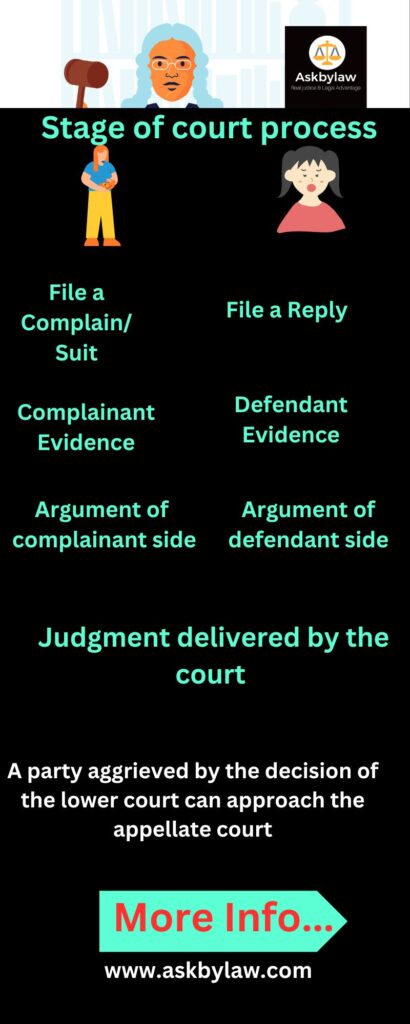Hi, Folks, Define the ownership-specific relief act
Are you listening to me! Correct!
One small positive thought in the morning can make huge positive results throughout the day.
Introduction-Define ownership-specific relief act
Awesome. Satisfaction with owning and owning a property is a matter of individual success and rights. The youngest person wants to be the owner and possessor of the property. As well as. Some people inherit property and take possession of the property. In exceptional circumstances, some people are found to be the owners and occupiers of the property by conspiring and ignoring the law. In such a situation, what should a true owner do to regain his lost possession? How will the law return possession of the seized property to the rightful owner? Let me start discussing such important questions with you.
True owners of property do not resort to the law to reclaim their lost possessions, either out of ignorance or out of ignorance of the law. And even illegally trying to reclaim lost possession of their property. The law does not help such a true owner as there are illegal attempts.
Occasionally. the real owner and occupier of the property is seen trying to reclaim the possession of their snatched property without the help of law, in which case the real owner of the property endangers his own existence and may even lose his life.
Occupancy is sometimes snatched from a property owner by a stranger or by an acquaintance. And, often the true owner of the property is unaware of the fact that possession of their property has taken away from them.
Rest assured. I hope that my discussion with you is in detail. Will definitely increase legal awareness. Let’s start here.
Are your read? what is digital payment in India?
What are the Terms of possession?-Define an ownership-specific relief act
What is called "possession", according to the law?
To understand the idea of occupation, we first need to understand the historical background of the word. At its root, is the significance of the word in its history.
Scholar Pollock says
that there must be physical power over the thing that establishes possession.
As the scholar, Salmond suggests,
"Possession of a physical object is a procedure with the exercise of the case for the use of its choice". Possession involves two main things.
The client's claim of choice and
The conscious or actual exercise of this guarantee. For the sake of understanding, the physical command over it.
The first is a mental element called "animus possession". And the second is the physical element as the "corpus possidendi".
Scholarly teacher Zacharias sees
that possession is the connection between a person and a thing which shows that the person is expected to have that thing. And there are limits to setting it up.
Scholar Sevigny,
in his possession hypothesis, says that the noise of physical possession is found in the physical intensity of rejection. The first is the "corpus", the physical ability to get something out of the blue.
The second thing is to get the first thing; you have to have the physical ability to hold it.
Scholar Salmond,
though it may be. Disagree with Sevigny's view that the holder must have the physical ability to block outside obstruction. The real test, as suggested by him, is not the physical severity of the rejection. In any case, he indicated "the possibility of obstruction by another."
Scholar Pollock
points out that in the same way in discourse man is said to have or possess anything over which he has clear control, or by which he has a clear intensity to restrict others.
According to the scholar Markby,
"possession is the study of material power over something which is connected with the benefit alone and the ability to do so."
Scholar Maine describes possession as
"physical imprisonment attached to the goal of keeping one's own thing."
Scholar Kant characterizes possession and says that
"possession must be an all-encompassing reality with the desire to keep something outside as one's own." At the end of the day, two elements are fundamental to establishing the idea of possession as complete and legitimate.
The physical element includes the physical command over the object.
Section 2 of possession
A mental element that includes the conviction to study that control.
The physical element is referred to as "corpus possession" and the mental element is referred to as "hostility possidendi". It is said that in order to establish significant and complete possession both of these elements must be available for example, there must be "animus possidendi" which means that the purpose of having such "corpus possession", for example, the object must actually be controlled by. The person who has the goal to get it.
It is to be noted that the above two are very necessary for the formation of corpus and there is sound acceptance in the veracity of the holder's case whereas bad will is the abstract element. Savigny was of the opinion that both elements, for example, the corpus and the animosity, must exist in order to gain possession.
The concept of "possession" under the original Roman and English law
The concept of "possession" is defined in Roman as well as English law. Both of these laws are considered to be authoritative and traditional laws in the field of law-making.
The concept under the original Roman law
Under Roman law, the idea of possession was used in two different senses. Possessing something was not the same as having legal possession of it.
The former meant that a person had only physical power over an object and was designated as "corpus possession" - while the latter meant having a restricted authority over an object. The Romans called it "civil property" which signified legal possession.
In Roman law, some significant results were associated with "civil property".
Proceed with possession of the immovable property as indicated and for a long period of time which was not imprisonment provided for possession or "possession" of the property by the holder. Courts have taken an active stance and role in understanding the concept of legal possession and ownership.
A person was supposed to be in legal possession of an object when he did not know that it was in his physical control or that he possessed it, yet, in the same way, he had the ability to prevent other structural barriers in his possession. This mental element of possessing and possessing something to deny all others was classified as "animus". Thus, two basic elements are required to be legally occupied which are as follows
Corpus
Animus
The concept under English law
The significance of possession has similarly been perceived in English law too. The terms are ordinarily utilized in both,
Civil Law.
Criminal law.
In the common law, viz. The law of torts, contract law, property, specific alleviation, and so forth numerous wrongs are characterized as subject to possession.
For understanding purpose, trespass is a wrong identifying with possession of land or merchandise, the change isn’t right influencing possessory directly in products and is known as “trover”.
In the criminal laws, burglary is untrustworthy removing any portable property out of the possession of any person without that individual’s assent.
English law believes that the acquisition or loss of possession results in a number of significant legal consequences. Possession is protected under the law for various reasons.
Various types of possession
The physical type of possession -
It is claimed for the specific use of physical objects such as land, buildings, and other movable or immovable objects. His claim exercise consists of two components, the corpus possessions, and the animus possidendi.
The first, in the case of physical possession, involves the constant exclusion of alien intervention. The second element, enjoy the thing as you wish without being interrupted by others. And its actual use is not necessary.
Occupancy incompatibility -
This type is associated with abstract objects. Such as trademark, goodwill, right to vote, right to pass, etc.
In some cases, things should be used consistently. Because not using it can encourage not having possession of such a thing. Everyone can claim the right to a path only through its actual and repeated use. And can maintain.
Native English law defines it as a continuous exercise of rights rather than a continuous exercise of the claim.
Reality - where the thing is in the immediate possession of the party.
Creativity - Possession is not real but is supposed to exist. Where someone claims.
In the original law -
it is known as de jure. And the person may not have physical possession of the item but may have a legal right to own the item. It can have 'legal possession' even if it does not have 'actual possession'.
In particular, it is also identified as de facto. And it exists when the thing is in the immediate possession of the person. A person has physical control over something that excludes others. Hosts enmity and corpus over material matter. That is a real possession.
Which can be considered as prima facie proof of ownership?
In arbitration and immediate law regarding possession. One person may have a thing for another person and because of it. In such a situation it is in the possession of the agency that owns the thing on its behalf.
As mentioned above, possession obtained by one person from another person can be termed a mediator. And when those movements are directly or individually acquired or maintained. When they can be identified as immediate or direct. And 'medium possession' is also known as indirect possession. There are three types. Which are shown below?
- Where a person acquires something by becoming a servant or agent. In such a situation, the servant or agent takes possession, on behalf of his master. Or maintains. In such a situation, only the master has possession of the arbitrator. However, he does not have custody of the item.
- Where direct possession rests with the person who owns it for his own right. And whenever he chooses to demand it on behalf of the person who has the best right to take possession directly from him, it means that it is a case of a borrower or a tenant at will.
He does not lose possession of anything. Because he has lent it to someone who accepts his title. And is willing to return it to him on demand. Which in the meantime holds and takes care of it on behalf of a person? Legal title.
- Where immediate possession is in the hands of a person who claims for himself until some time has elapsed or certain conditions have been met. But who accepts the title of another for which he has the thing. And to whom, when his own temporary claim is over, he is ready to deliver it. There is a lease or mortgage for understanding.
Organic Occupancy
Physical detention of an item that a person possesses, without any title of possession or with a title which is void.
Strategic/Constructive Possession
The type of possession of a person in the legal occupation or custody of a property. But not under its own title claim. But under the right obtained from others. To understand, the tenant, the guarantor, the licensee, etc.
Adverse Occupancy
Real, open, and infamous possession and enjoyment of real estate, or any estate lying in the grant, continued for a certain period of time, adversely and in opposition to and denial of the other claimant's title, or in circumstances which indicate the color of the claim or right or title. Like the other person who is out of the possession of the person, by the person who maintains it.
Naked custody
Any just possession, without the right color. The title is spoken of as the lowest and most incomplete degree.
Open possession
Possession of any real property is called "open". When kept without concealment or attempt of secrecy. Or attempts to withdraw from sight without concealing the name of a third party, or otherwise. But in such a way that any interested person can ascertain through proper observation and inquiry that is really in possession. What is the Concept of possession?
Are you read this: My husband sexually assualted
What does specific relief mean? Define ownership-specific relief act
Really. The special relief law in India is a law that provides a just remedy. This means directing you to enter into an agreement in accordance with the terms and conditions agreed between the parties, instead of paying compensation or damages for non-performance of the agreement. On the other hand, the solution here is that the claimant is given only what he is entitled to in return for the money. It is on this basis that there may be situations in which the compensation grant cannot afford adequate relief and. Only certain performance of the agreement will provide justice and adequate relief. This law is codified in the Special Relief Act-1963 (as amended in 2018). And is considered a branch of the Indian Agreements Act-1872. Read more…
Wow. The power of the court to reach a definite conclusion in a dispute is discretionary and is based on justice, equality, and good conscience.
Great. Let us understand this with the help of a definite case in Kanshiram v. Omprakash Jawal & ORS AIR 1996 SC-2150, where a plot of 100 square yards at Lajpat Nagar, Delhi was sold in 1970 for Agreed to sell at Rs.16000/-. The court, at a lower cost, spent such a long time and, after considering the plaintiff's claim, set aside a specific operational order for alternative compensation and instead paid Rs. Declared a compensation of Rs 10 lakh.

Define ownership-specific relief act
What is specific relief and how is granted?-Define the ownership-specific relief act
Recovery of any immovable property:
Surprise. Any person entitled to possession of a particular immovable property, even if the right of such possession is temporary, may file a suit for recovery of such possession as per the Code of Civil Procedure. A person has been evicted or removed from property against his or her will without due process of law. Even if the person does not have a title or legal right to continue in possession, that person can file a claim for recovery of possession. Give this as an example if the occupant tenant whose tenancy has been terminated is forcibly evicted by the landlord without due process of law. So it can restore possession. The person can seek possession in a civil court after due process of law.
Amazing. Let me tell you that there are some essential requirements for fulfillment of occupation recovery.
- The person claiming for disposal must have taken possession of the property.
- Disposal of a person's property and such disposal of property should be done illegally
- Disposal should be without the consent of the claimant.
- The suit must be filed by the person before the expiration of 6 months from the date of disposal.
No lawsuit can be filed by any person against the government of the country.
Nice. Recovery of certain disputed movable property: Similarly, any person entitled to possession of certain movable property, if that right is special or temporary. However, a claim may be filed for recovery of such article as provided in the Code of Civil Procedure. When a person is in possession or control of something he does not own. In the following cases, the person entitled to his immediate possession may be compelled to deliver such articles.
True. Sometimes an article is held by the defendant as a plaintiff's trustee or agent.
- Sometimes, a return on money is not enough relief.
- When it is difficult to ascertain the actual damage done to a person.
- Possession of the article so that it has been wrongly transferred from the rightful person.
Specific performance of the contract agreement-Define ownership-specific relief act
Wonderful. Agreements between any parties are the basis of any economic relationship in the modern world. If a contract is breached, the offending party can sue the breach party. But compensating the injured person is the only way that the law of the contract can enforce the contract. In many cases, the compensation fails to fulfill the economic purpose of the contract. Unless the opposite is proved, the court assumes that (1) breach of disputed immovable property contract cannot be adequately met by money (2) breach of disputed movable property agreement can be relieved unless a) where It is not a general article of commerce when the property is held by the defendant as a trustee for the property.
The exact operation in a case usually depends on the discretion of the court, but there are some principles for an operation that I will show you.
When in any disputed contract, the remainder constitutes a small portion of the total value of the contract. And confesses return in money. The court can then direct a specific performance of the contract as much as possible. And can compensate for the rest.
Rest assured. While in any conflicting agreement, the part that remains is a significant part.
Are you read this: Can do someone sue you after insurance pays: 100% step by step discussion on the insurance claim
Who can claim specific relief?-Define an ownership-specific relief act
Awesome. Pursuant to Section-15 of the Indian Special Relief Act-1963. Specific contract performance can be obtained by. Read more…
Any party
Principle or representative in the interest of either party.
Nice. Any beneficiary is entitled to certain actions if the contract involves marital settlement or settlement of disputed rights between members of the same family. If the tenant for life has contracted in a proper exercise of power, the rest is the man.
The reviser in possession, if the contract is entered into with his predecessor in the title entered into and the reviser is entitled to the benefit of such contract;
The contract is the contract and in case of breach of contract, the reverser suffers physical injury. So the rest of the Reverser will be entitled to the benefit.
Define ownership-specific relief act
Wow. 6-A. when a limited liability enters into a partnership agreement and then merges with another limited liability partnership. As a result, new limited liability partnerships emerge.
A company merges with another company under the terms of an agreement. The merger will then result in the formation of a new company.
The promoters of a company have entered into an agreement prior to its establishment for the purposes of the company. And if such agreement is guaranteed by the terms of the corporation, then the company has to accept that agreement. And the other party to the agreement must report such acceptance. Read more…
- In any party agreement, there are two parties, Like A and B. Therefore, any party can get a certain performance of the agreement.
- Representative in principle or interest of any party.
- Representative of interest.
- This is a broad term that includes agent, assigner or legal representative.
Terms of the contract in which the interested representative or his principal cannot obtain the exact performance of the contract.
- If the party’s knowledge, ability, solvency or any personal attribute is a physical factor in the contract.
- The agreement provides that his interest will not be vested.
- Any beneficiary is entitled to certain operations if the contract involves marital settlement or settlement of disputed rights between members of the same family.
- If the tenant for life has contracted in the proper exercise of power, the arrears;
Statutory Tenant
Great. A person who is entitled to use the property for the rest of his life in order to gain possession of the land which has been beneficially settled under the settlement. He is entitled to legal property but only for the duration of his life.
Reminder man
Wonderful. A person who inherits property on the expiration of the former owner's estate or is entitled to receive it. A debtor is a person who has an interest in a property that is in arrears and will acquire ownership of it at some point in the future.
-
Reverser in possession.
Nice. If there is an agreement entered into in the title with his predecessor and the Reverser is entitled to the benefit of such agreement.
Retriever in possession
Amazing. Any party to whom the property is returned, and who is in possession of a particular property. When the owner of the property effectively transfers the property to another but retains some future rights in the property, he is referred to as a reviser in possession.
Legal agreement
It is a legal promise or agreement between two people, or companies or even countries.
The reviser in possession also has the right to receive the specific performance of the contract entered into by another person.
- If the contract is contractual and the reverser suffers physical injury in case of breach of contract, the remaining reverser will be entitled to the benefit.
- The reverser will be responsible for the injury caused by the non-performance of the contract by the rest
- 6-A. when a limited liability partnership enters into an agreement and then merges with another limited liability partnership, a new limited liability partnership arises from the consolidation.
- Marvelous. This clause has been introduced by the Specific Relief Amendment Act- of 2018.
- A company merges with another company under the terms of the contract; the merger will result in the formation of a new company.
- The promoters of the company have entered into an agreement for the purposes of the company before its inception. And if such agreement is guaranteed by the terms of the corporation, then the company has to accept that agreement. And the other party to the agreement must report such acceptance. Rest assured.
Are you interested to read this: How to collect Marriage certificate in India: Step-by-step guide to the process of registration??
What are the provisions available under the specific relief act-1963 in terms of recovering possession of the property?
Define ownership-specific relief act. Sections 5 and 6 of the Special Relief Act-1963 provide methods for the recovery of possession of the certain immovable property. Section-5 of the Special Relief Act-1963 provides that any person entitled to possession of a particular immovable property may recover it as prescribed by the Civil Procedure-1908 (5 of 1908).
Section-5 of this Act provides for the recovery of certain immovable property. As Per statutory interpretation "Any person entitled to the possession of special immovable property can recover it. Must be in the manner provided by the Code of Civil Procedure-1908".
The essence of this clause is ‘title’, i.e. the person who has a better title. That person is the person entitled to take possession. Any title can be owned or occupied.
The principle of this law is that a person has been in possession of an immovable property for a long time. That person can protect it by seeking a restraining order against anyone in the world except the rightful owner. It is a permanent principle of law that a property owner can reclaim possession only by resorting to due process of law. It is thus necessary to file a claim for possession in view of the provisions of the Civil Procedure Code.
Section-6 of the Special Relief Act in this Act deals with the provision relating to a claim by a person disposed of immovable property. ,
(1) If a person's immovable property has been seized without his consent, except in the proper course of law, he or any person claiming by him may, by claiming, reclaim his possession.
(2) No suit shall be brought under this section.
After the expiry of the period of six months from the date of disposal.
Against the government.
(3) No appeal may be made against any order or decree passed in any suit established under section of this Act. Nor will any review of the decree under this section be allowed.
(4) Nothing in this section of the Act shall prevent any person from establishing his title to such property and claiming for possession of it.
Section-6 applies only when the claimant proves-Define ownership-specific relief act
- He is in judicial possession of the disputed immovable property.
- It was disposed of without his consent and without due process of law.
- The disposal occurred within six months from the date of claim.
Sections-5 and section-6 of this Act both provide alternative remedies and are mutually exclusive. Under section-5, the person disposed of may acquire possession on the basis of title. And in section-6, the person disposed of may reclaim possession by proving previous possession and more incorrect possession.
Possession in the context of Section-6 of this Act means legal possession which may exist with or without actual possession and with or without the origin of the right. The plaintiff is not required to establish title in a claim under section-6 of this Act.
Long-term peaceful possession is enough to prove real possession of the property. The provisions and interpretation of section-6 of this Act are as follows.
To discourage others from taking the law into their own hands (even if their title is good).
To provide a cheap and useful remedy to the person occupying the immovable property in accordance with this Act.
It should be noted in particular that permission to occupy is completely unnecessary. There the owner has the right to acquire possession without the knowledge of the occupant. The only prayer in a claim under section 6 of this Act may be a prayer for recovery of possession. And consequently, a claim for damages cannot be attached to it for possession. Section-14 of the Indian Limitations Act-1963 applies to proceedings against disposal.
Recovery of possession of the movable property
Sections-7 and Section-8 of the Special Relief Act-1963 contain provisions for the recovery of possession of certain movable property. Section-7 of the Act provides that with the head 'Recovery of special movable property here'. As per interpretation "A person entitled to the possession of a certain movable property may recover it in the manner provided by the Code of Criminal Procedure-1908 (5 of 1908)”.
The main components of Section-7 are as follows.
The plaintiff should be entitled to possession of the movable property. And a person may be entitled to possession of an object by the ownership provided under section-2 of section-7 or on the basis of a temporary or special right. And a person's exclusive or temporary right may arise by any act of its owner. Here the goods i.e. bail, pawns, etc., or not by the act of the owner of the goods i.e. the person may be the finder of the goods. And the searcher has the exclusive right to seize, except against the true owner.
The property in question must be a certain movable property i.e. the property must be fixed or fixed. And exclusive property means that there is no property equivalent to it. As well as be able to deliver and seize the disputed specific movable property. And where the goods have ceased to be recovered or are not under the control of the defendant, the plaintiff is not entitled to obtain a recovery order.
Section-91(b) of the Indian Limitation Act-1963
if the property has been misappropriated. Or provides a three-year period for filing a computable claim from the date when the possession becomes illegal.
Section-8 of the Specific Relief Act here, to deliver to the person entitled to immediate possession. Makes provision for the liability of the occupant, not as the owner.
Any person in possession or control of a particular article of any movable property, which he does not own. It may be especially compelled to deliver it to the person entitled to immediate possession, in any of the following cases.
(a) When any claimed item is held by the defendant as the plaintiff's agent or trustee.
(b) When a refund in any money cannot afford adequate relief for the loss of the claimed item.
(c) While it will be extremely difficult to ascertain the actual damage caused by any damage.
(d) When possession of any claimed item has been wrongly transferred from the plaintiff.
Explanation - Unless any contradiction is proved, in respect of any article of movable property claimed by the court under this section (b) or section (c). Assumption-
(a) When in finance he cannot afford adequate relief for compensation loss.
(b) It will be extremely difficult to ascertain the actual damage caused by his loss.
The following components must be combined to implement Section-8.
- Any defendant has full control or possession of the claimed article.
- And any such article is movable property.
Any person claiming possession should be entitled to immediate possession;
- No defendant owns the article.
- Any claimed item is held by the defendant as an agent. Or when the compensation in money cannot afford adequate relief for the loss or when it is extremely difficult to ascertain the actual loss of the claimed item.
The burden of proving a trust relationship is on the plaintiff under section (a) of this Act. And even under section (d), there is a burden on the plaintiff's part to prove the transfer wrong.
The difference between Sections-7 and Section-8 of this Act
No claim can be made against the owner under section 8 here. A person who has a special or temporary right of possession under section 7 may also sue the owner. And a decree for compensation or money of movable property under section-7. Alternatively value when the decree under section 8 is only for the return of a particular article.
Are you read this: How can I get G.S.T. Registration Number?
References-Define ownership-specific relief act
That. Krishna vs. A.N. Paramkusha Bai
Robin Ramjibhai Patel vs Anandibai Rama Rajaram Pawar.
Bommaka Nagbhushan Reddy Vs. Srinivasa Rao
Swiss Bank Corporation v. Lloyds Bank Ltd.
Hari Krishna Agarwala vs K C Gupta
HPA International vs Bhagwandas Fatehchand Daswani
- K. Verma Vs. Union of India
The specific relief act (with amended)

Conclusion-Define ownership-specific relief act
Great understanding. After discussing the above with you in detail, I would like to say that any property owner or occupier has to follow the procedure prescribed by law. The court does not recognize the right of the rightful owner to enjoy the property without following the legal process. Possession and ownership are two different things, so if someone misbehaves with the property, you should immediately consult a property management lawyer and seek their advice and make your property a custodian according to the law.
Define ownership-specific relief act. Unfortunately. Even in the case of companies, when concluding an agreement, by discussing the legal provisions with an expert lawyer, it is possible to avoid possible losses and difficulties in the future.
Remember. It saddens me to say that some owners and occupiers and companies fail to obtain benefits in their own property and contracts without consulting expert lawyers themselves or with the help of an unskilled person so as not to incur any cost.
Please be noted. Property Owners Nowadays, it is important to seek the cooperation of the law in order to ensure that you do not fail to take care of your property and the benefits of the contract.
Have a good day
Jay hind- Jay Bharat














